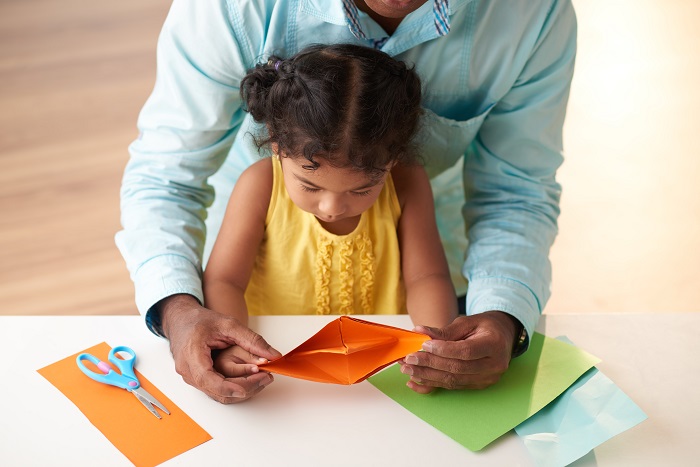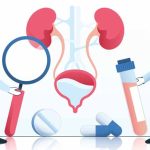The scene is all too familiar. You pass the local Starbucks and are greeted by the sight of a bunch of teens heading out, lattes and frappuccinos in hand. You’re not alarmed in the least bit; after all, this has become a socially accepted norm in this day and age. But should it?
In this article we will ‘spill the beans’ on whether coffee might be the right choice of drink for your kids. Coffee for kids might be fine, some parents think; but just how much can they safely consume? Read on to know more.
Is Coffee Bad for Kids?
What might be the effect of coffee on kids? Probably the first question that comes to every discerning parent’s mind. While there’s nothing wrong in children consuming small quantities of coffee, one must keep a watch on the things that find themselves sneaking into that cup of java as well: things like whipped cream, sugar and caramel, that all increase the consumption of fat and sugar.
The American Association of Pediatrics recommends that children under the age of 12 do not consume caffeine at all. However, if a study in the journal Pediatrics is to be believed, a whopping 73% of children and adolescents drink caffeine in some form or the other, every day!
The Effects of Coffee on Kids
What might be the effect of those innocuous-looking coffee beans on our children? Let’s take a look.
Dehydration
Your kid will end up going to the loo with a far greater frequency, if they consume more coffee than desired. This puts them at the risk of dehydration.
Change in Mental State
Kids drinking coffee in the short run might be alert (they might use this as an excuse to drink coffee so they can study), but in the long run, excessive coffee intake has them prone to serious mental conditions like anxiety and depression.
Induces poor sleep patterns
Coffee for kids beyond a particular limit and at late hours, can interrupt their sleep cycles. This can hamper the growth in their brain and body.
Caffeine dependency
Kids drinking coffee are prone to developing withdrawal symptoms like lack of concentration, tiredness and headaches. It paves the way for their being dependent on caffeine in the years to come.
Might decrease appetite
According to a review study, coffee for kids might not be great for getting children to eat well. When consumed half an hour to four hours before a meal, it might suppress their appetite.
It can cause dental cavities
Caffeinated drinks are often laced with sugar that can cause bacterial growth in the mouth. These bacteria produce acid that goes on to erode the tooth enamel.
It can cause bone loss
Increased caffeinated intake can cause increased calcium excretion that contributes to bone loss. The lowered calcium levels during puberty serve to hamper the normal growth and development of a child.
What is the right age to drink coffee?
A most tricky question, this. Firstly, there is no right age per se where it comes to kids drinking coffee. What you need to bear in mind, though, is this: You should generally allow older children and adolescents to drink coffee, and keep it away from the reach of younger kids.
Note: Older children and adolescents must only be allowed to have coffee in limited quantities and if they are unwilling to replace it with a healthier drink.
Coffee for Kids: Some Interesting Facts
Here’s a list of facts you might not know, in relation to the touchy subject matter of kids drinking coffee.
- Besides elevating the anxiety levels of children, coffee can cause things like hyperactivity, muscle tremors and an irregular heartbeat.
- Health Canada gives the following recommendations for the amount of caffeine kids can consume: not more than 44 milligrams a day for kids aged 4 to 6, 62.5 mg for kids aged 7 to 9, 85mg for kids aged 10 to 12 and no more than 2.5mg/kg of body weight for adolescents from age 13 upwards.
- There are several foods that contain caffeine, too: some kinds of ice-cream, yogurts, energy bars and even chewing gum!
- Light-coloured caffeine beans contain more caffeine than the dark ones. Interesting, right?
- Coffee was actually discovered by a goat herder in Ethiopia in the 1500s, who saw his goats eating cherries. He noticed they didn’t sleep at night after eating them. The rest, as they say, is history.
Tips for getting children to consume less caffeine
Want your child to stop drinking caffeine altogether? That’s going to be a tad difficult. You can always try, though. At the very least, you will get them to drink less!
- Know how much caffeine is in your child’s drinks. They probably do not know exactly how much caffeine they are consuming. Make it a point to check the labels on the drink they have. If they contain too much caffeine, you might want to give these a skip.
- Talk with your children about the health risks of caffeine. If your child has a strong affinity towards consuming drinks like Red Bull and Snapple that are loaded with caffeine and sugar, probably the only way you’re going to get them to stop consuming these, is by educating them about the adverse effects of caffeine on their health.
- Encourage them to drink more water and milk. Sounds impossible? What if you stock your refrigerator with only water and low-fat milk, and make sure you never have any energy drinks lying around the house? That might just do the trick!
- Don’t let your child drink coffee less than 6 hours before bedtime. If they do, they will be prone to having difficulty falling asleep.
Your kids look up to you as role models for most things they do. Don’t let drinking coffee be one of them. The harsh truth is, there are several potential health implications that can stem from having too much coffee, and it’s best for your children to stay away from the beverage as much as possible. Visit EuroKids for more information.
















